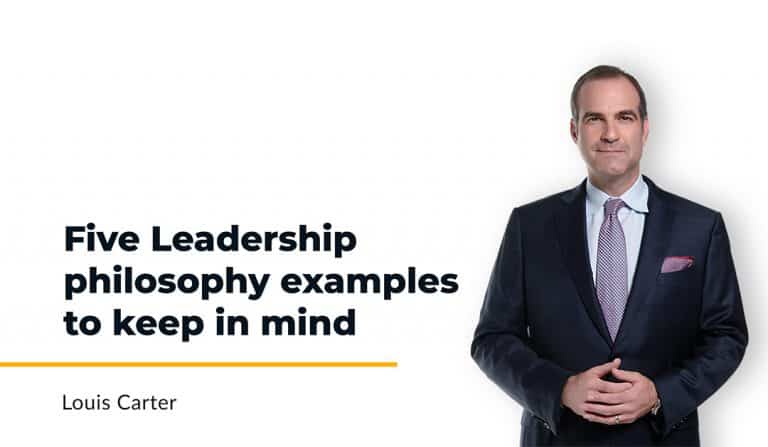Executive coaching has evolved into a powerful tool for leadership development, offering a personalized and impactful approach to honing leadership skills. In an organization’s success, the role of executive coaching techniques cannot be overstated. This article explores the transformative impact of executive coaching, showcasing its significance in fostering leadership growth and achieving organizational excellence.
Understanding Executive Coaching Techniques
Executive coaching techniques form the cornerstone of leadership development, providing a nuanced and tailored approach to nurturing executive talent. In this transformative process, leaders receive personalized guidance, enabling them to navigate challenges, harness strengths, and unlock their full potential.
The essence of executive coaching lies in its one-on-one interactions, creating a space where leaders can candidly explore their abilities, address weaknesses, and embark on a journey of continuous improvement.
Defining Executive Coaching
At its core, executive coaching is a dynamic and adaptive developmental process. It is meticulously designed to elevate the leadership capabilities of executives.
Through a series of focused sessions, coaches and leaders collaboratively identify strengths and address improvement areas. This personalized approach distinguishes executive coaching, ensuring that it aligns precisely with each leader’s unique needs and aspirations.
The Role of Leadership Development Coaching
Integral to the executive coaching landscape is leadership development coaching. This facet goes beyond a leader’s immediate challenges; it is a forward-looking approach.
Leadership development coaching centers on cultivating a holistic set of skills—ranging from the technical aspects of leadership to the intricacies of emotional intelligence and strategic thinking. This dual focus prepares leaders for their current roles and positions them as catalysts for positive change in future organizational landscapes.
Executive coaching techniques provide a bespoke route for leaders to refine their skills. By addressing the present and preparing for the future through leadership development coaching, executives undergo a comprehensive growth journey, ensuring they are not just adept leaders but visionary architects of their professional destinies.
Embarking on the journey of executive leadership is akin to navigating uncharted waters. It demands a nuanced understanding of leadership skills that extend beyond traditional management. In this exploration, executives delve into the intricacies of decision-making, emotional intelligence, and strategic insight.
Navigating executive leadership skills involves honing the abilities that set leaders apart, enabling them to steer organizations through complexities while fostering a culture of growth and innovation. Let’s unravel the essential facets that constitute the art of navigating executive leadership skills.
Effective Coaching Strategies for Leaders
Effective coaching strategies in executive coaching encompass a range of approaches. One key strategy is goal-setting. Coaches work with leaders to define clear, achievable goals, creating a roadmap for their leadership journey.
Another essential strategy is feedback. Constructive feedback helps leaders gain insights into their actions and behaviors, fostering continuous improvement. It builds trust and a sense of partnership between the coach and the leader.
Tailoring Coaching to Individual Needs
Executive coaching recognizes that leaders are unique individuals with distinct strengths and areas for improvement. Tailoring coaching to individual needs ensures the process is relevant, engaging, and directly contributing to leadership growth.
Building Emotional Intelligence
Executive leadership skills often hinge on emotional intelligence (EI). Coaches employ strategies to enhance EI, helping leaders navigate complex interpersonal dynamics, make empathetic decisions, and foster a positive work culture.
The Art of Leadership Growth Techniques

Leadership is a dynamic journey marked by continuous growth and adaptation. In executive leadership, this evolution becomes an art form—a strategic and intentional process of refining skills, expanding perspectives, and fostering personal and professional advancement.
The art of leadership growth techniques encompasses a repertoire of strategies and practices designed to cultivate leaders who not only navigate current challenges but also proactively shape the future of their organizations. Here, we look into the nuanced artistry of leadership growth, unraveling techniques that elevate executives to new heights of influence and effectiveness.
Strategic Thinking and Decision-Making
Leadership growth techniques embedded in executive coaching extend to strategic thinking. Coaches guide leaders in developing a strategic mindset, helping them make informed decisions aligned with organizational goals.
Cultivating Resilience
In overcoming challenges, resilience is a defining trait of effective leaders. Executive coaching emphasizes techniques for cultivating resilience, empowering leaders to bounce back from setbacks, and leading with unwavering determination.
Promoting Continuous Learning
Leadership is an evolving journey. Executive coaching instills a culture of continuous learning. Leaders are encouraged to seek knowledge, embrace change, and adapt their leadership styles to evolving organizational needs.
The Impact on Organizational Success
Executive coaching isn’t merely an investment in individual leaders; it’s a strategic commitment to an organization’s overall success and resilience. The impact of effective executive coaching resonates far beyond individual skill enhancement—it reverberates throughout the organizational landscape.
As leaders refine their abilities and foster a culture of continuous learning, the ripple effect is felt in improved team dynamics, enhanced employee engagement, and, ultimately, the achievement of organizational objectives. Let’s explore how executive coaching significantly contributes to the broader canvas of organizational success.
Enhancing Organizational Performance
The impact of executive coaching reverberates throughout an organization. Leaders equipped with refined skills and a growth mindset contribute to enhanced organizational performance. Their ability to inspire, innovate, and lead with vision creates a ripple effect across teams.
Fostering a Positive Work Culture
Executive coaching contributes to fostering a positive work culture. Leaders equipped with effective coaching strategies build strong, collaborative teams. It not only enhances employee satisfaction but helps attract and retain top talent.
Driving Innovation and Adaptability
Leadership growth techniques learned through executive coaching empower leaders to drive innovation and adaptability. These qualities are crucial for steering organizations through challenges and availing opportunities in a rapidly changing business environment.
Final Word: The Ongoing Journey of Leadership Excellence
The art of executive coaching is a dynamic and ongoing journey toward leadership excellence. By understanding and employing effective coaching strategies, leaders can navigate challenges, cultivate essential skills, and contribute to the overall success of their organizations.
Leadership development coaching tailored to individual needs ensures that leaders not only meet current demands but are also prepared for future uncertainties. As organizations increasingly recognize the value of executive coaching, it becomes a cornerstone for shaping visionary leaders and building a resilient, innovative, and successful future.






